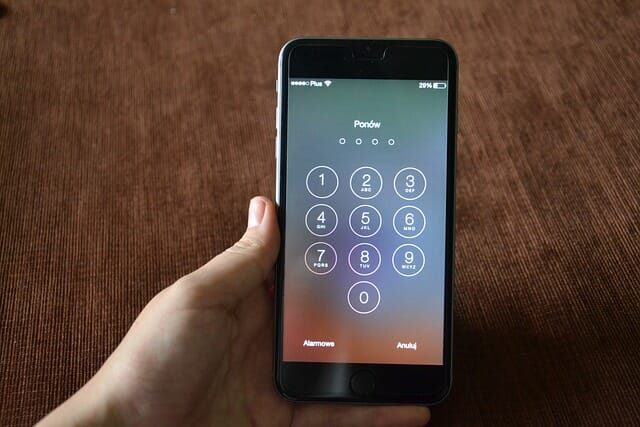
Reverse Phone Lookup Explained: Everything You Should Know
When your phone rings and a number you don’t recognize flashes across the screen, what do you do? Do you let it go to voicemail, hoping that whoever it is will leave a message? Or do you answer, only to be met with an awkward silence or, worse yet, a telemarketer's pitch? It’s situations like these that make the art of reverse phone lookup a modern necessity. So, strap in as we dive into the world of reverse phone lookup explained: everything you should know!
What is Reverse Phone Lookup?
Reverse phone lookup is like having a magic eight ball for your phone calls. Instead of just seeing an unfamiliar number and wondering who it belongs to, reverse lookup allows you to input that number into an online tool and unveil its secrets. This service can provide information about the caller, such as their name, address, and sometimes even their social media profiles. Think of it as CSI for your cellular device.
But how does this sorcery work? Well, when someone registers their phone number—be it landline or mobile—it often gets logged in databases managed by telecom companies or third-party services. When you perform a phone number look-up, these databases spring into action and fetch relevant data tied to that elusive digit.
Why Use Reverse Phone Lookup?
You might be scratching your head at this point, thinking: "Isn't this just for nosy neighbors or paranoid parents?" Not quite! The beauty of reverse phone lookup lies in its practicality. Here are some reasons why you might want to consider using this nifty tool:
Identify Unknown Callers: Whether it's an old friend trying to reconnect or a persistent spammer, knowing who you're dealing with can save you time and frustration.
Avoid Scams: Unfortunately, not all numbers calling are friendly. A quick search can help identify potential scams or telemarketing calls before you engage.
Reconnect with People: Maybe you've lost touch with someone but have their number saved somewhere. A reverse lookup might just lead you back to them.
Verify Numbers Before Responding: If you're receiving suspicious messages or calls from a number claiming to be from your bank or another institution, verifying can save you from falling victim to fraud.
How Does Reverse Phone Lookup Work?
Now that we've established what reverse phone lookup is and why it's useful let’s explore how it works reverse lookup reddit in more detail. The mechanics behind this operation are both fascinating and straightforward.
Database Queries: When you enter a number into a reverse lookup service, the system queries various databases where such information is stored. This could include public records, call logs, and even social media profiles where individuals have chosen to link their numbers.
Information Aggregation: Many services aggregate data from multiple sources so that they can present comprehensive results in one place. This means you're less likely to miss out on critical information simply because it's listed under one database but not another.
User Interface: Most services have user-friendly interfaces where users simply type in the number they wish to investigate and hit “search.” In mere seconds (or sometimes minutes), voila! You have your answers laid out before you.
Choosing the Right Reverse Phone Lookup Service
With numerous options available online—the good, the bad, and the downright ugly—how do you choose the right service for your needs? Here are some tips:
- Look for Transparency: Choose services that clearly outline what information they provide and any associated costs.
- Check Reviews: User testimonials can give insights into how effective a service is.
- Privacy Policy Matters: Ensure that the service respects user privacy and has solid security measures in place.
- Trial Options: Some services offer free trials or limited searches without charge—take advantage of this before committing!
Common Misconceptions About Reverse Phone Lookup
Just like any good urban legend out there about mysterious callers and haunted phones, there are several misconceptions floating around regarding reverse phone lookups:
It Only Works for Landlines: False! Most modern services cater primarily to mobile numbers as well.
It's Always Accurate: While many services strive for accuracy by updating their databases regularly, no service can guarantee 100% accuracy due to privacy laws affecting data collection.
It Costs an Arm and a Leg: While some premium services may charge hefty fees for detailed reports, many basic lookups remain free or relatively inexpensive.
It Invades Privacy: The data accessed through these tools typically comes from publicly available sources; therefore, using them responsibly does not infringe on anyone's privacy rights.
Reverse Phone Lookup Explained: Everything You Should Know – FAQs
Now let’s tackle some burning questions about reverse phone lookups that might still be lingering in your mind!
Can I use reverse phone lookup on any type of phone number? Yes! Most reverse phone lookup services cover both landline and mobile numbers globally although availability may vary based on location.
Are there any free options available for reverse phone lookup? Certainly! Many platforms offer basic reverse lookups at no cost; however, detailed reports may require payment.
Is my information safe when I use these services? It depends on the platform! Choosing reputable services with strict privacy policies will ensure your personal information remains secure during searches.
In summary, understanding how reverse phone lookup works is essential in our modern age where unknown callers often disrupt our daily lives. By leveraging these tools responsibly—and armed with knowledge—you can navigate the murky waters of unidentified numbers with confidence! So next time your phone buzzes with an unfamiliar caller ID flashing on screen, don’t panic; remember this guide on reverse phone lookup explained: everything you should know!